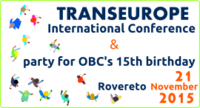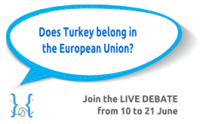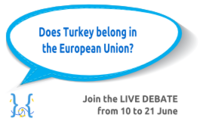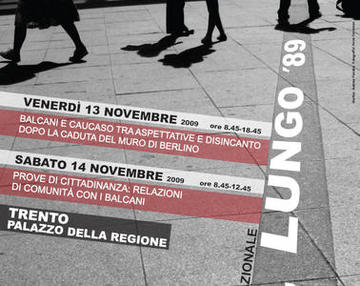Transeurope. Civil society networks
International conference, Rovereto 21 November 2015
The international conference aims at bringing the Balkans, Turkey and the wider post-Soviet space, from Ukraine to the Caucasus, back in the spotlight, fostering public debate on the relevance of the latest developments in these countries and regions for the state of today's Europe overall. The exodus of refugees along the “Balkan route”, armed conflicts and international interventions, threats to the freedom of information: two plenary sessions and three parallel workshops will allow citizens to engage in a dialogue with scholars, politicians, journalists, international officers and practitioners from many European countries.
Becoming Europe
International Conference, 16th of November 2013
The European Union, Nobel Peace Prize, measures in the Balkans and in Turkey the strength of its political project. Scholars, journalists, politicians and diplomats discuss the legacy of the Nineties and the challenges of the present. The final event of the project "Tell Europe to Europe"
Does Turkey belong in the European Union?
Live Debate, 10-21 June 2013
The Turkish economy is growing, together with the country's influence in the Balkans, Northern Africa and the Middle East. The recent protests, however, are highlighting issues which in Turkish society remain unresolved: the level of democracy, the freedom of the press and the distribution of wealth. An EU candidate since 1999, Turkey is still waiting. Enlargement fatigue, the scepticism of some EU countries, and fear of its 80 million of inhabitants, the vast majority Muslims, are keeping her on the waiting line. But does Turkey really belong in the European Union?
Organic Balkans
Stakeholders, policies, and institutions: a regional perspectivee
Sarajevo (BiH), 14th June 2013
Seminar and book launch
Organic Balkans
Stakeholders, policies, and institutions: a regional perspectivee
Belgrado (SRB), 28th May 2013
Seminar and book launch
Has the ICTY contributed to reconciliation in the former Yugoslavia?
Live Debate, 20th February - 5th March 2013
In 1993 the United Nations Security Council created the International Criminal Tribunal for the Former Yugoslavia. One of the main aims of the ICTY was to “contribute to the restoration and maintenance of peace” in the region. The results of the Tribunal's work have been recently assessed by the ICTY President, judge Theodor Meron, in the last report presented to the United Nations General Assembly: “The remarkable achievements of the Tribunal [...] have contributed to bringing peace and reconciliation to the countries of the former Yugoslavia [...] forging a new international culture of accountability”. Is it so?








